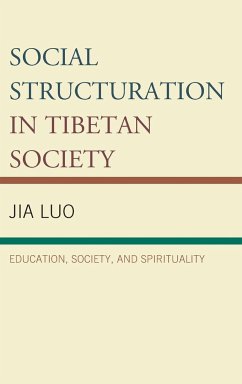
Muslims in Amdo Tibetan Society
Multidisciplinary Approaches
Herausgeber: Hille, Marie-Paule; Nietupski, Paul K.; Horlemann, Bianca

PAYBACK Punkte
28 °P sammeln!
This book examines the role of Muslims in Amdo society. The contributors challenge established stereotypes of Tibetan–Muslim relations and explore historical, socio-economic, political, religious, and linguistic aspects of Tibetan, Muslim, and Chinese interactions in this borderland region.














